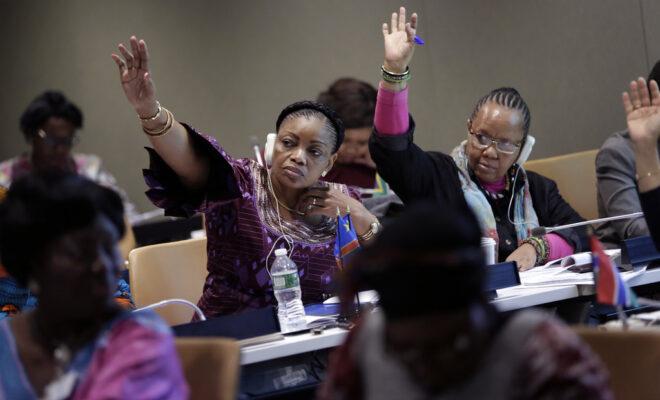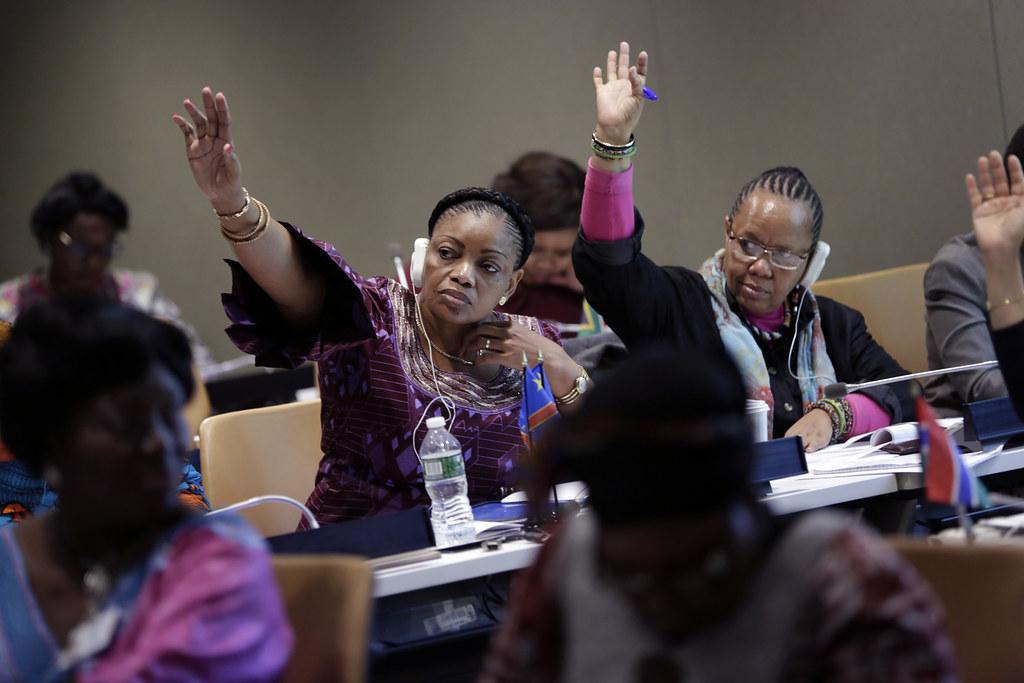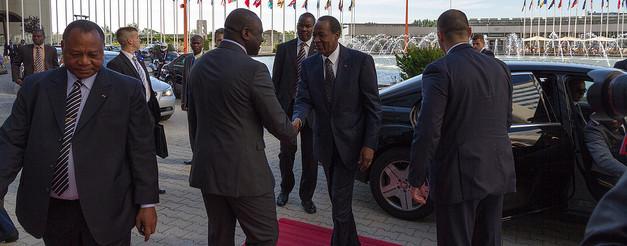Africa needs female leaders now more than ever

As the continent continues to combat the pandemic and starts to plan recovery efforts, the views of the group most affected must be heard.

From the High Level Women Leaders Forum for Africa’s Transformation at the UN. Credit: Photo: UN Women/Ryan Brown.
The COVID-19 pandemic has revealed and amplified inequalities around the world. Amidst lockdowns and economic shocks, it is no surprise that women in Africa have been hit particularly hard. According to the Brookings Institute, more than 70% of women across the continent now face economic insecurity. From job losses to increases in unpaid labour, a rise in domestic violence, and disruptions to education, African women have shouldered great mental, physical, and economic stress.
Yet despite the pandemic’s outsized impact on African women, their voices are seldom included in recovery efforts, especially at the highest levels. In my home country of Ghana, where I served as a member of the National Democratic Party’s COVID-19 Technical Response Committee, I could count the number of other women involved in decision-making on two hands. This reality is reflected across the region and the world. Women constitute only a quarter of health ministers in Africa. Worldwide, they account for just a quarter of decision-makers on COVID-19 response panels despite making up 7 in 10 frontline workers.
This is part of a larger pattern. In 2020, only 14 countries worldwide had cabinets where women held at least half of posts. Only one – Rwanda – was in Africa. By now, it is no secret that African women are rarely included in government circles. And when they are, they often suffer severe harassment. According to a 2016 study of female parliamentarians, four in five had experienced psychological violence linked to their job, one in four physical violence, and one in five sexual violence.
I know this first-hand. As a parliamentary candidate in Ghana’s recent elections, I experienced an avalanche of discrimination with bitter criticism of everything from my makeup to my medical qualifications despite being a board-certified surgeon. This vitriol is not only a threat to women’s safety but a deterrent that dissuades qualified female candidates from running in local and national elections alike.
As countries continue to combat the pandemic, it is essential that the voices of all affected parties – especially women – are heard. Because the impact of COVID-19 has been gendered, the voices of women must be front and centre if we want to respond effectively and build more equitable societies.
We have already seen how female-led countries tended to respond to the pandemic most successfully, with numbers of cases and deaths systematically lower in countries led by women. In the US, one study of governors found that states with female leaders had lower fatality rates. In India, women-led councils have pushed for better access to clean water, which is critical for preventing the spread of the virus. There is plenty more research and anecdotal evidence suggesting that when women are in leadership, governments are more likely to respond to crises in ways that support socio-economic development. When we exclude or dissuade women from political office, societies lose.
My fellow countryman Kofi Annan once noted that “there is no tool for development more effective than the empowerment of women. No other policy is as likely to raise economic productivity or to reduce child and maternal mortality. No other policy is as sure to improve nutrition and promote health, including the prevention of HIV/AIDS. No other policy is as powerful in increasing the chances of education for the next generation.”
What he did not include in that statement is the reality that women are not only facilitators of peace but also the backbone driving our development. It is not just because of altruism; it is often because women have experienced developmental challenges first-hand: the face of poverty in Africa is female. These lived experiences might explain why studies show that female politicians are more likely to prioritise health, education, and related indicators.
Gender equality is undoubtedly a regional and global imperative. The African Union calls for “a more inclusive society where all the citizens are actively involved in decision making in all aspect”. The United Nations declares that all sustainable development goals hinge upon the achievement of gender equality. Yet as we navigate COVID-19 recovery, we need more attention to gender equality than ever before. We have lost too much during this pandemic to let the carefully fought gains of recent decades disappear.
To avoid regression, we must recognise that gender equality is critical to the ability of our societies and economies to recover and that diverse leadership is a crucial dimension of this journey. Instead of seeking to go “back to normal”, it is time to introduce a “Great Reset” by promoting governance models that amplify women’s voices and engage women as decision-makers.




